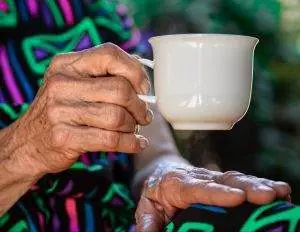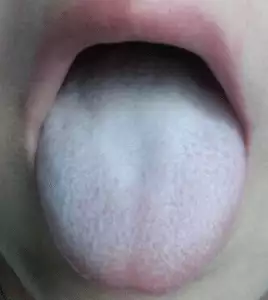-
 Art of Wellness Acupuncture & Traditional Chinese Medicine (TCM)11704 Wilshire Blvd, Suite 295, Los Angeles, CA, 90025
Art of Wellness Acupuncture & Traditional Chinese Medicine (TCM)11704 Wilshire Blvd, Suite 295, Los Angeles, CA, 90025
myartofwellness@gmail.com310-451-5522 Office Hours
MonClosedTue7:30 am --4 pmWed7:30 am --4 pmThu7:30 am -- 4 pmFri7:30 am -- 4 pmSat7:30 am -- 4 pmSunClosedOur office opens from Tuesdays to Saturdays 7:30 am to 4 pm, will be closed on Memorial day, Independent day, Labor day, Thanksgiving day, Christmas and New year.
-
Recent Posts
- Chinese New Year 2026: Year of the Horse
- Acupuncture and TCM Treatment for Perimenopause Symptoms
- How to Treat Insulin Resistance With Acupuncture and TCM
- How to Treat Metabolic Syndrome With Acupuncture and TCM
- How to Treat Syncope With Acupuncture and TCM
- How to Treat Thoracic Outlet Syndrome With Acupuncture and TCM
- How to Treat Dupuytren’s Contracture With Acupuncture and TCM
- How to Treat Nutcracker Syndrome With Acupuncture and TCM
- How to Treat Rosacea With Acupuncture and TCM
- How to Treat Perioral Dermatitis With Acupuncture and TCM
- Lymphatic Drainage With Acupuncture and TCM
- How to Treat Turf Toe With Acupuncture
- How to Treat Nerve Pain With Acupuncture and TCM
- How to Treat Watery Eyes With Acupuncture and TCM
- How to Treat Ovarian Cysts With Acupuncture and TCM
- How to Treat Dystonia With Acupuncture and TCM
- Sign up to receive news and updates and get my free report:“The Top 10 Reasons to Try Acupuncture”

November 2025 M T W T F S S 1 2 3 4 5 6 7 8 9 10 11 12 13 14 15 16 17 18 19 20 21 22 23 24 25 26 27 28 29 30
Insomnia
How to Treat Addiction With Acupuncture and TCM
By Qineng Tan, L.Ac, Ph.D. & Xiaomei Cai, L.Ac., Ph.D.

Are you, or is someone you love, struggling with alcohol addiction or some other substance abuse problem? Alcoholism, drug addiction, and other issues like porn addiction problems or food addiction can be helped with TCM treatment. Acupuncture for addiction can help people overcome the physical symptoms of alcohol withdrawal, and help them deal with the mental and emotional aspects of substance abuse recovery.
Drug use, drinking, and smoking are behaviors that are widely practiced and deeply ingrained in our modern society. If we consider tobacco smoking and alcohol consumption in addition to “harder” drugs, then over 60% of the population uses some type of addictive substance on a regular basis.
Substance use disorders (SUDs) are a major health concern worldwide. It is estimated that over 20 million Americans are currently suffering from some type of addiction to drugs or alcohol. While addiction can happen to people of all ages, young people are especially at risk for substance abuse. When teens and young adults start binge drinking or abusing drugs, it can have a serious effect on their brain development and increase their chances of developing a substance abuse problem.
More recently, the surge of opioid use has dramatically increased the number of people who are dangerously dependent on prescription painkillers or deliberately misusing opioid medications like fentanyl or Oxycontin. People can become addicted to opioid medications in a short period of time. Accidental overdose is one of the leading causes of death in the U.S., which has contributed to the recent decline in average life expectancy.
Even moderate drinking and use of recreational drugs can affect a person’s overall health, sleep habits, and fertility. There are many benefits to reducing your alcohol consumption, or choosing to go through an alcohol detox or a designated period of sobriety, like “Sober October” or “Dry January.” A TCM herbal detox with acupuncture treatment can help improve your vitality and get rid of nagging health issues.
If you know you have a serious problem with addictive behaviors, though, you will probably need some sort of treatment and support system to help you get sober and recover physically and mentally from substance use disorder.
What Causes Addiction?

When we talk about addiction, we are usually referring to the relationship of the body and mind to psychoactive substances such as: alcohol, nicotine, marijuana, heroin, cocaine, amphetamines, methamphetamine, hallucinogens, etc. The chemical composition of these substances causes them to have a profound effect on the brain chemistry of human beings.
Unfortunately, many drugs that are prescribed by doctors to help relieve pain and other symptoms of illness are habit-forming, too. When people try to stop taking the medication they’ve been using to help with post-surgical pain, for example, or to help them sleep, or to relieve situational depression and anxiety, they find they can’t just “quit.”
Even “milder” substances like caffeine and sugar, which many people consider to be a regular part of their daily diet, can be abused to the point that they become detrimental to your health. And, of course, we all know how hard it is for people to quit smoking. Nicotine is one of the most addictive substances out there.
Most of these drugs affect the way the brain produces dopamine and other neurochemicals. When you stop drinking or using the drug, the brain is not ready to go back to its old ways of creating and releasing dopamine. There is a period of adjustment, during which symptoms of withdrawal can make a person very uncomfortable, or even violently sick.
Certain behaviors, like scrolling through social media websites on your phone, or looking at pornography, or even engaging in sexual activity, can also be addictive because of the way they impact dopamine production and other brain activity.
There has been a lot of shame and stigma attached to alcoholism and addiction. Sometimes, people live in denial of the fact that they are too heavily reliant on drinking or using drugs to help them cope with stress. Alcohol abuse or drug abuse are still considered by some people to be personal problems, having to do with a lack of willpower or gratitude.
We now understand that addiction is a disease, and that it can be difficult and actually dangerous for people to try to stop using some drugs without some form of treatment. Doctors and mental health professionals are trained to help people safely recover from substance abuse, and treatments exist to provide relief from drug withdrawal symptoms. In addition to the 12 step program Alcoholics Anonymous, which provides emotional support through group interactions, many other clinics and rehab centers provide care for those trying to stop using drugs and alcohol.

Still, most people find that recovering from addiction is extremely difficult, probably the hardest thing they have ever tried to do. Many people, no matter what kind of treatment they receive, or how many times they go through a 12 step program, still relapse. First a person needs to decide that they are ready to commit to recovery. Then, finding the right support is crucial to success.
TCM methods of acupuncture and herbs offer an alternative or adjunctive treatment for addiction. Acupuncture treatment has been shown to help patients suffering from alcoholism and depression, reducing cravings and symptoms of withdrawal and improving mental health.
Acupuncture can help people overcome substance abuse, addressing both the physical effects of drug use with an effective alcohol detox or drug detox, and the emotional problems most people face when they begin recovery treatment.
Top 10 Symptoms of Withdrawal from Alcohol Dependence and Drug Abuse
Withdrawal is the body’s reaction when a person stops using drugs or alcohol after having been ingesting them regularly for a significant period of time. When the body and brain have become addicted to a substance, the physical and emotional need for that substance can cause a severe reaction when a person stops abruptly, making it very difficult for a person to resist using again. Withdrawal symptoms can vary, depending on what type of substance you’ve been using, and how long you’ve been using it.
Symptoms of withdrawal include:
- Tremor, hands shaking, body shaking, seizures
- Anxiety, depression, agitation, feeling jumpy, irritability, delirium, hallucinations
- Watery eyes, tearing, runny nose
- Hot flashes, chills, hot flushes, hot and cold, sweating, clammy skin
- Nausea, vomiting, diarrhea
- Muscle cramps, muscle aches, muscle pain, muscle tension
- Dehydration
- High blood pressure, fast heartbeat, irregular heartbeat, palpitations
- Anxiety, depression, overwhelming negative emotions
- Insomnia, trouble sleeping, restlessness
Other signs of withdrawal can include: trouble concentrating, memory loss, foggy headedness, pupils dilated, loss of appetite.
Some medical detox programs are designed to help people gradually taper their use of drugs like amphetamines or sleep medications so as to minimize withdrawal symptoms. Treatment centers, such as a methadone clinic, may use certain approved medications to help relieve cravings when people are coming off of heroin or prescription pain medications.
Acupuncture, a TCM detox program, and other TCM treatments can serve as an alternative or adjunct treatment to help alleviate withdrawal and help people survive through the toughest parts of recovery.
Top 5 Ways Acupuncture Can Help Addiction

The relationship between Chinese medicine and alcohol goes back many centuries. As early as 1600 B.C., we have records of alcohol being used in medicinal preparations and for its anesthetic properties. Problems with overuse of alcohol, however, are also a longstanding part of Chinese culture, so TCM has developed treatments to help people reduce their consumption of alcohol.
According to TCM philosophy, too much alcohol creates excessive heat in the body, and disturbs the balance of Yin and Yang. In conventional medicine, the focus tends to be on how alcohol abuse impacts the liver. In TCM, we see that binge drinking also taxes the stomach and spleen, and encourages dampness to take hold. Thus, acupuncture treatment for alcohol addiction will often focus on clearing heat and dampness from the organ systems, while strengthening the stomach and spleen.
TCM takes a holistic approach to treating Substance use disorders, meaning we focus not only on the physical symptoms of withdrawal, but also on the emotional, mental, and spiritual problems associated with addiction.
Most people become dependent on drugs or alcohol because they are already experiencing some form of emotional struggle or mental health issue. When the substance is taken away, those feelings come up to the surface again, demanding attention. For many people, the anxiety and depression they face when they quit drinking or using drugs is overwhelming.
Some people may avoid 12 step programs, an AA meeting, alcohol rehab, drug addiction centers for substance use disorders, or even one-on-one talk therapy because they are not ready to talk about the trauma that triggered their anxiety or depression. Acupuncture treatment can be very helpful for anxiety and depression, without having to delve into these conversations.
TCM treatment for addiction works on multiple levels:
- Detox – TCM has a history going back for many centuries of actively seeking to remove toxic substances from the body to improve both physical and mental health. The practice of using Chinese herbs used in combination has been developed to be highly effective as a detox from all kinds of drugs. A TCM detox treatment program uses acupuncture treatment as well as herbs taken internally (as a tea or capsule) and used externally (detox patches) to draw toxins from the body, providing a deep cleansing for the liver and other organ systems.
- Reduces cravings – whether the problem is nicotine, alcohol, opiates, food, or some behavior like engaging with porn, the use of auricular acupuncture and applying pressure to acupressure points on the head and ears for cravings can be very effective.
- Withdrawal Symptoms – Acupuncture has been shown to help people with symptoms of opioid withdrawal, heroin withdrawal, and prevent relapses.
- Mental Health – people who were treated with acupuncture for addiction reported that it helped them feel more confidence in their ability to quit. Acupuncture helps relieve anxiety and the negative effects of stress.
- Sleep aid – many people start using drugs in the first place because they have trouble sleeping. When people quit drinking and using drugs, they can suffer from insomnia and restlessness. Acupuncture is an excellent modality for helping people to relax and experience deeper, higher quality sleep.
Acupuncture has been shown to have an effect on neurotransmitters like dopamine and serotonin, which are involved in the brain processes that make certain substances so addictive.
Several types of Chinese medicines based on herbal formulation have been tested and approved for treatment of opiate addiction in China.
Studies have shown that electro-acupuncture, and auricular acupuncture can reduce cravings, and alleviate anxiety related to drinking cessation.
Acupuncture for Addiction Treatment Near Me in Los Angeles Area
Addiction can be devastating for individuals and their loved ones, but substance abuse and other kinds of addictions can be overcome with time, dedication, and the right treatment plan. At Art of Wellness, we are ready to become part of your support team, providing consistently excellent health care through acupuncture and herbs, as well as being there for you when you need emotional support. We want our patients to think of our clinic as a second home, where they can find peace and strength to help them overcome their substance use disorder.
*This article is for education from the perspective of Traditional Chinese Medicine only. The education provided by this article is not approved by FDA to diagnose, prevent, treat and cure human diseases. It should not stop you from consulting with your physician for your medical conditions. Traditional Chinese Medicine is based on Qi, which is an invisible force that usually cannot be observed by modern science. Because science focuses on testing ideas about the natural world with evidence obtained through observation, these aspects of acupuncture can’t be studied by science. Therefore acupuncture and Chinese herbs are often not supported by double-blind, randomized trials, and they are considered alternative medicine therapies in the United States.
How to Treat PTSD With Acupuncture and TCM
By Qineng Tan, L.Ac, Ph.D. & Xiaomei Cai, L.Ac., Ph.D.

Post Traumatic Stress Disorder (PTSD) is a type of mental illness that develops after a person has gone through a traumatic life event. PTSD flashbacks, intrusive thoughts, nightmares, and sleep disorders are a few of the most common signs of PTSD. Acupuncture and TCM are widely accepted as a highly effective way to treat complex PTSD and other stress disorders, as well as anxiety, depression, panic attacks, and insomnia.
PTSD is mostly commonly associated with veterans of the military, as many soldiers who have served in combat experience trauma related to war violence. A significant amount of scientific research and psychiatric study has been devoted to finding out about PTSD and what treatments for PTSD are effective. Relative to other conditions, there have been quite a few studies showing that acupuncture can be helpful for PTSD. The U.S. Navy has even started an acupuncture training program in San Diego, after a Pentagon study showed that TCM is beneficial for veterans.
PTSD is not only a problem for military veterans, though. PTSD can result from all kinds of traumatic life events, including things like: accidents, natural disasters, surgeries, assaults, attacks, abandonment, or the death of a loved one. More than 8 million Americans are currently living with post traumatic stress. People of all ages can experience PTSD. PTSD can result from experiencing something traumatic directly, or being a witness to such an event. People whose jobs involve exposure to violence or disturbing situations, such as first responders, social workers, or police officers, can also have PTSD because of things they have seen. A person can be deeply traumatised by something they didn’t see happen firsthand, but that they heard happened to someone close to them.
The body’s response to extreme stress is one of its ways of protecting us. Stressful situations cause the “fight-or-flight” response and chemicals like adrenaline to be released. When this happens repeatedly, or to an extreme degree, because a person is literally in fear for their life, there can be long-lasting physical and emotional effects. Normal, everyday stress we hope to release from the body through exercise, meditation, laughter, and other stress-reducing activities. But when a person has endured abuse or life-threatening danger, they may not be able to release the stress from their bodies so easily.
TCM theory offers a way to help people deal with mental health issues like PTSD because it creates a context in which emotional and mental symptoms interact with physical symptoms. TCM addresses the way that trauma and negative emotions are stored in the body, sometimes causing overwhelming emotional and physical symptoms. Acupuncture and herbs are holistic treatments for PTSD that can be used as an adjunct to therapy and medications to help relieve stress, sleep problems, mood disorders, negative emotions, and problems with cognitive function.
Top 10 Signs of PTSD

Many people don’t realize that they are experiencing post traumatic stress. PTSD can overlap with several other types of mental health problems, and the symptoms of PTSD can often seem similar to those of other anxiety disorders or symptoms of depression. What PTSD feels like can be highly individual to each person and what caused their initial trauma.
The most commonly recognized symptoms of PTSD include:
- Flashbacks, intrusive thoughts, reliving traumatic events, can’t stop thinking about what happened
- Nightmares, recurrent, vivid, disturbing dreams
- Avoidance of triggering places, activities, or people
- Memory loss, amnesia, unable to remember periods of time related to the traumatic event
- Negative perception of self, negative perception of the world, blaming self or others
- Isolation, unable to connect with other people, relationship problems
- Feelings of anger, irritability
- Hypervigilance, always aware of perceived threat, can’t relax, exaggerated startle response, always on guard, panic attacks
- Difficulty concentrating, inability to focus on the present
- Insomnia, can’t sleep
PTSD often coexists with other mental health issues like anxiety, panic attacks, and depression. Chronic fatigue syndrome (also knowns as ME/CFS)has been associated with PTSD. Fibromyalgia, a syndrome that can cause generalized muscle pain, sleep problems, fatigue, and other problems can be related to PTSD. Sometimes fibro manifests after a traumatic event.
Types of PTSD

The term “stress disorder” refers to a combination of physical and emotional symptoms that are the body’s and mind’s stress responses to some type of trauma.
Different types of stress disorders include:
- Normal stress response – even common everyday work stress and relationship stress can cause widespread health problems. Serious issues like a relationship breakup, or job loss can lead to negative emotions and physical problems due to stress. People of all ages can experience debilitating symptoms of stress like: stomachaches, headaches, trouble concentrating, rapid heartbeat or trouble sleeping. If stress is allowed to build up over time, it can seriously damage health. Past illnesses or viral infections, like Epstein Barr and mononucleosis can also be a factor.
- Acute stress disorders – acute post traumatic stress is the immediate aftereffect of some sort of traumatic event or life-or-death situation. If the short-term (30 days or less) acute signs of trauma are left unaddressed, they can turn into PTSD.
- Uncomplicated PTSD – this refers to PTSD symptoms related to a specific traumatic event, such as a car accident, being the victim of a crime or assault, or surviving a natural disaster and its aftermath. This type of PTSD causes symptoms like: flashbacks, nightmares, avoiding a particular area, thing, or person, and strong feelings of anger, blame, and fear that impact your relationships and sleep patterns.
- Complex PTSD – complex trauma is the result of multiple, repeated traumatic episodes, like suffering abuse as a child, being in an abusive relationship, domestic violence, or repeated sexual abuse. Complex PTSD could also happen to people living in wartime conditions or who are part of a targeted community under brutal conditions. PTSD attacks can be brought on by complex PTSD triggers that remind you of the traumatic events, such as: a particular place or smell, a time of year or date, a physical pain or sensation in a particular part of the body, or reading a story or seeing a movie or TV show that brings up the memory.
- Comorbid PTSD – this refers to PTSD that coexists with other serious issues such as substance abuse, addiction, and/or depression. Comorbid PTSD is very common, because many people suffer from more than one of these mental health conditions at the same time.
In general, complex PTSD and comorbid PTSD are considered more difficult to treat and more likely to affect people throughout their lives than uncomplicated PTSD.
PTSD Treatment
Treatment for PTSD typically involves a combination of psychotherapy/cognitive behavioral therapy (CBT) and psychiatric medications for PTSD such as antidepressants (SSRIs like Zoloft, Prozac, or Paxil) and anti-anxiety medications (like Xanax, Ativan, Valium, or Klonopin). Long-term use of anti-anxiety medications is generally not recommended, as patients can become dependent on them, leading to abuse of the drugs. SSRIs can be helpful for symptoms of depression, but they can also have negative side effects, like sexual dysfunction (ED), weight gain, nausea, dizziness, and making sleep problems worse.

Exposure therapy is a specific type of therapy that helps people learn coping skills by working with the distressing memories or exploring possibly frightening situations in a safe environment with a therapist. Eye movement desensitization and reprocessing (EMDR) helps patients learn to adapt to the stress tied to the past trauma by thinking about it while looking at a movement pattern or listening to a repetitive sound. This treatment has been shown to help PTSD patients heal emotional trauma more quickly than talk therapy or CBT alone.
The conventional treatments for PTSD can help some patients, to different degrees, but many people with complex trauma do not want to go through this type of treatment. Talk therapy, trauma-based CBT, and exposure therapy may be terribly intimidating to people who are suffering with PTSD, and patients may be more afraid of entering into these kinds of therapy than continuing on with their current symptoms.
The TCM modality of acupuncture can have a positive effect on neurotransmitters, the brain chemicals that influence cognitive thought patterns and moods, without the potential negative side effects or dependency that can result from medications. Acupuncture can be a helpful alternative or complementary treatment to other types of therapy for PTSD.
Can Acupuncture Help PTSD?
In historical records of TCM, we do not see a word or description of a condition that is directly synonymous with PTSD. However, in TCM, we view emotional states as being related to the function, or dysfunction, of specific organ systems. The symptoms of PTSD can correlate with these relationships between the organs, the mental state, and physical manifestation of symptoms:
- Lung – Grief – Wheezing, trouble breathing, sweating, fatigue
- Spleen – Worry – Nausea, gastric problems, loss of appetite
- Liver – Anger – Headaches, muscle pain, dizziness
- Heart – Anxiety – Palpitations, insomnia
- Kidney – Fear – Urinary frequency, night sweats, memory problems
A TCM provider will look carefully at how each individual describes their physical symptoms and emotional state, and will choose acupuncture points for PTSD and herbs to help strengthen the organ systems that need nourishment.
In regards specifically to military veterans with PTSD, many survivors are wary of seeking medical or psychological treatment for complex trauma. The majority of soldiers who have served in the Middle East in recent years have been diagnosed with PTSD, but less than half of those veterans are receiving medical treatment for PTSD. Many people, in general, are reluctant to seek care, either because they don’t trust that it will work, or their complicated feelings of shame, guilt, grief, and anger are too overwhelming to share with others.
Acupuncture can be particularly helpful for some people suffering from PTSD because it does not necessarily have to involve talking about the original trauma or abuse. Some patients may avoid psychotherapy for this very reason, as they are not ready, and may never be ready, to go over these details with another person. An acupuncturist can help relieve symptoms of anxiety and depression by focusing on the person’s emotional and physical needs and tailoring the treatment to fit their symptoms and lifestyles.
A clinical study done by the Long Beach V.A. randomly divided patients into “real acupuncture” and “sham acupuncture” groups, and the patients received treatments twice per week over the course of 12 weeks. The veterans who received real acupuncture showed significant physiological improvement, with less startle reactions, as measured by skin sensors, than the sham group.
A Rand review found that acupuncture helped improve symptoms of depression, anxiety, and sleep problems in PTSD patients.
Acupuncture Near Me for PTSD in Los Angeles
It can be a long and challenging process to overcome complex PTSD, but with the right combination of PTSD treatment, it is possible to reduce or even eliminate symptoms. With a TCM approach and acupuncture treatment, we can help reduce anxiety and depression, address feelings of anger and grief in a clinically meaningful way, and help to promote better sleep. If you or a loved one is dealing with unresolved trauma and needs help, you may find that acupuncture is a low-risk and supportive way to treat PTSD.
*This article is for education from the perspective of Traditional Chinese Medicine only. The education provided by this article is not approved by FDA to diagnose, prevent, treat and cure human diseases. It should not stop you from consulting with your physician for your medical conditions. Traditional Chinese Medicine is based on Qi, which is an invisible force that usually cannot be observed by modern science. Because science focuses on testing ideas about the natural world with evidence obtained through observation, these aspects of acupuncture can’t be studied by science. Therefore acupuncture and Chinese herbs are often not supported by double-blind, randomized trials, and they are considered alternative medicine therapies in the United States.
How to Treat Parkinson’s Disease With Acupuncture and TCM
By Qineng Tan, L.Ac., Ph.D. & Xiaomei Cai, L.Ac., Ph.D.

Hand tremor or shaky hands, stiffness in limbs, trouble walking, or problems with balance? These may be signs of Parkinson’s Disease (PD). Parkinsons is a progressive neurological disorder that primarily affects the brain cells that produce dopamine. Integrative care with acupuncture treatment may help relieve symptoms of Parkinson’s disease better than conventional treatments alone.
Parkinson’s disease is a neurological disorder that causes damage and dysfunction in brain cells, so that communications between the brain and the body don’t work the way they usually do. Sometimes a range of symptoms similar to those experienced by people with Parkinson’s occurs due to small strokes that affect the blood supply to the brain. This condition is called vascular parkinsonism.
More than ten million people are currently living with Parkinson’s disease worldwide. The chances of having PD increase with age, and men are more likely to have Parkinson’s than women. Early onset Parkinson’s can occur in people under 50. While it is often considered a movement disorder that causes hand tremors and other problems with mobility, Parkinson’s disease can cause less obvious symptoms, too.
Parkinson’s disease causes both “motor” and “non-motor symptoms;” the motor symptoms include physical problems like trembling hands or hand shaking, stiffness in the arms and legs, and trouble with balance when walking. The non-motor symptoms may include cognitive problems with memory, foggy-headedness, and trouble sleeping. It might even seem like a person’s personality and social behavior change, because they have trouble speaking and making their usual facial expressions.
Neurological diseases like Parkinson’s can slow the production of chemicals usually produced by the nervous system, including both dopamine and norepinephrine, a chemical that constricts blood vessels to raise blood pressure. It may be this lack of norepinephrine that causes some of the symptoms of Parkinson’s, such as low blood pressure, digestive problems, and fatigue.
Parkinson’s is a progressive disease, which means that people with PD go through stages as the condition affects more and more brain cells. In the early stages, the motor symptoms are mild and may only occur on one side of the body. In the later stages, a person may not be able to perform basic daily activities like getting dressed, eating, or walking without assistance.
What causes Parkinson’s disease? Medical science does not currently have an answer for why the brain cells become damaged or die in people with Parkinson’s. Scientists have observed that patients with Parkinson’s often have unusual clumps of a protein (alpha-synuclein) in their brain cells; these are called “lewy bodies” (lewy body parkinsons). These may be causing mutations in the cells that impair their ability to produce dopamine and other neurochemicals. Genetics, aging, and toxins in the environment or diet may all play a role in the development of Parkinson’s.
Conventional treatment for Parkinson’s involves finding a combination of medications that may help to reduce tremors and stiffness, and the myriad other symptoms a person with PD may experience. TCM offers an effective and safe adjunctive Parkinson’s treatment. Acupuncture treatment is widely accepted as a way to help relieve pain and nausea related to all types of diseases. TCM treatment can also have a positive effect on neurochemical activity, increase dopamine levels, help improve motor function and gait, and relieve fatigue.
Top 10 Symptoms of Parkinson’s Disease

The early signs of Parkinson’s are generally related to movements of the body, like feeling stiff when getting up or mild hand tremors. People may not realize that other symptoms, like low blood pressure and dizziness, are also related to early stage Parkinson’s. The most common symptoms of Parkinson’s disease include:
- Tremor – a small, involuntary shaking movement occurs most often in the hands, but can also be in a finger or thumb, or the chin. Sometimes called static tremor or resting tremor.
- Trouble moving or walking – limbs may feel stiff or rigid, there may be hip pain or shoulder pain. Most noticeably, the arms may not swing naturally when a person walks, or a person may shuffle, feeling it is hard to lift their feet off the floor. Movements that have been automatic for one’s whole life become challenging.
- Dizziness – fainting or feeling dizzy when you get up from sitting or lying down. This happens due to a sudden drop in blood pressure called orthostatic hypotension. A general feeling of weakness, feeling lightheaded, foggy headed, headache, blurred vision, and difficulty thinking or concentrating, and memory problems.
- Change in handwriting – this symptom is called micrographia, and it refers to a noticeable difference in a person’s writing, as they make smaller letters and the words are crowded closer together.
- Loss of smell, loss of taste, loss of appetite – many people with Parkinson’s develop an inability to smell in the early stage of the disease, known as olfactory loss. This can also affect a person’s ability to taste foods, which can lead to loss of appetite. Some medical theories suggest that Parkinson’s may begin in the olfactory region of the brain.
- Disturbed sleep, sleep disorder – sleep problems might simply be trouble falling asleep or trouble staying asleep, but they may also involve a lot of movement, or “tossing and turning,” or even talking in your sleep, crying out or yelling due to vivid dreams. Restless leg syndrome, when the limbs jerk, or leg cramps, may also be caused by Parkinson’s.
- Constipation, nausea, or trouble swallowing – cell damage in the gut may actually be one of the first symptoms of Parkinson’s, causing gastrointestinal problems due to slower movements of the smooth muscles of the digestive tract. Feeling nauseous or having a bloated stomach happens when the contents of the stomach empty too slowly into the intestine.
- Changes in the voice – people may notice that your voice sounds hoarse, weaker or more quiet than usual. This can be due to both motor and non-motor problems of PD, related to difficulty swallowing, sore throat due to heartburn, sensation of choking or food stuck in throat. It is also related to cognitive difficulties that make it harder to think of words, causing slow speech, or in other cases, talking too fast to be understood. Sometimes it may seem that a person with Parkinson’s doesn’t feel like talking much.
- Changes in facial expression – called “facial masking,” some people with Parkinson’s will find people asking them if they are upset because the expression on their face looks very serious, sad or angry, or they appear to be staring. This happens because of decreased motor function of the muscles of the face.
- Changes in posture – people with Parkinson’s may begin to hunch over while sitting, with shoulders hunched forward, or assuming a “stooped” posture while standing or walking. Again, this is due to a lack of communication between the brain and the muscles. This hunched posture can affect deep breathing, and increase the risk of falls.
Parkinson’s symptoms are complex, and vary widely from person to person. People with Parkinson’s are often subject to feelings of depression and anxiety, as well. Treatment for Parkinson’s symptoms requires a multipronged approach that addresses each individual patient’s physical, emotional, and mental health.
Medical Parkinson’s Treatment
When treating Parkinson’s, doctors will often try various combinations of drug therapy, some of which aim to replace dopamine, to help relieve tremors and other motor symptoms of PD. Levodopa/Carbidopa (or Sinemet) is a combination medication that creates a controlled release of dopamine. This can help to alleviate some symptoms, but the symptoms return when the medication is not in the bloodstream. Unfortunately, this medication can cause side effects like nausea and vomiting, and people will often need to take larger doses to get the same effect as the disease progresses. Long-term use sometimes causes dyskinesia, or involuntary movements of the limbs. Doctors may then prescribe another medication, such as Amantadine or Gocovri, to help mitigate these effects, or to help stave off motor symptoms during “off” times when the dopamine-replacing drugs wear off.
Patients with Parkinson’s will often be given other medications to help with problems like constipation, high blood pressure, sleep problems, pain, and depression. TCM and acupuncture offer a holistic way to treat many of the symptoms of Parkinson’s at the same time, without so many drugs and their potential side effects.
How Can Acupuncture Help Parkinson’s?

Part of TCM theory involves the concept of Ben and Biao, or “Root and Branch.” We observe that the expression of illness in the body is like the system of roots and branches of a tree. The branches show us the outward symptoms, while the root of the disease is hidden deeper under the surface, where we can’t see it. In order to treat the symptoms of any illness, we study the branches to find out where the problem originates, then we go to the root of the problem to solve it. We do this with a combination of acupuncture, herbs, and other modalities like moxibustion, cupping, and tuina massage. These TCM treatments allow us to address problems in the organ systems of the body, where lie the roots of illness, while at the same time, helping to relieve the pains and uncomfortable symptoms occurring in the branches.
Parkinson’s disease is considered by TCM philosophy to occur due to deficiencies in the root, which cause excess in the branches. Deficiency of the kidney, liver, spleen, blood and Qi (root problems) contribute to heat, phlegm, stasis, and wind in the limbs (branches). Tremors in the hands, and changes in facial expressions and movements are caused by Wind and Phlegm. According to TCM, Wind causes problems, often in the upper body, that come and go, such as stiffness, spasms, facial tics, and shaking of the limbs–like the wind shaking the branches of a tree. Wind can also cause symptoms like ringing in the ears (tinnitus), sudden headaches, and hives. Phlegm, which blocks the energy channels of the body, disrupts the smooth flow of blood and Qi to the limbs, creating a sense of stiffness, heaviness in the limbs, resistance to moving or speaking, staring, heavy feeling in the chest, and lack of coordination.
Acupuncture treatment for Parkinson’s disease, then, focuses on clearing heat, wind, and phlegm, strengthening and nourishing the blood, and getting the Qi moving smoothly again.
When we use acupuncture and herbs to help Parkinson’s, we see changes occurring in the neurochemical activity of the brain.
One study looked at the changes in neural response in the brain immediately after acupuncture treatment. This study concluded that after 8 weeks of treatment, patients with Parkinson’s showed significant improvement in brain function.
Another clinical study showed that acupuncture helped to increase levels of Tyrosine hydroxylase, a brain chemical involved in the production of dopamine.
TCM herbal formulas have also been clinically demonstrated to help relieve Parkinson’s symptoms like speech problems, tremors, and gait disturbances.
Research has shown that using TCM herbs to treat Parkinson’s is a safe and effective adjunctive therapy to conventional medical treatment.
Acupuncture Near Me for Parkinson’s Disease Santa Monica Westside

The goal of treatment for Parkinson’s is to slow down the progression of the disease and do what we can to maintain mobility and cognitive function. The sooner we begin treating Parkinson’s disease with acupuncture and TCM methods, the better chance we have to limit the effects of the disease and help patients stay active. If you or someone you love has Parkinson’s, consider adding a TCM doctor to your health care team. Integrative treatment for Parkinson’s with acupuncture and herbs can help treat Parkinson’s naturally.
*This article is for education from the perspective of Traditional Chinese Medicine only. The education provided by this article is not approved by FDA to diagnose, prevent, treat and cure human diseases. It should not stop you from consulting with your physician for your medical conditions. Traditional Chinese Medicine is based on Qi, which is an invisible force that usually cannot be observed by modern science. Because science focuses on testing ideas about the natural world with evidence obtained through observation, these aspects of acupuncture can’t be studied by science. Therefore acupuncture and Chinese herbs are often not supported by double-blind, randomized trials, and they are considered alternative medicine therapies in the United States.
How to Treat HIV/AIDS With Acupuncture and TCM
By Qineng Tan, L.Ac.,Ph.D. & Xiaomei Cai, L.Ac., Ph.D.

What does it mean to be HIV positive? HIV is a viral infection that harms the immune system over time and, if untreated, can eventually lead to AIDS, a syndrome that causes people to become weaker and get serious infections easily. There is no cure for HIV/AIDS, but there are various therapies that can slow the progression of HIV. Acupuncture and TCM herbs can help to improve immune function and relieve symptoms related to the side effects of other HIV/AIDS drug therapies.
Human immunodeficiency virus (HIV) is an infection that affects the immune system by destroying the white blood cells (CD4 and T-cells) that are such an important part of the body’s immune response, causing people with HIV to be much more prone to all kinds of infections. Acquired immune deficiency syndrome (AIDS) is the late stage of HIV, in which the CD4 cells have reached a critical low point and other infections are taking hold in the body.
Over a million people in the U.S. are currently living with HIV. Many more people may have HIV and not know it. People can have HIV for several years without feeling any symptoms, while the illness is in its early stages.
HIV is a progressive illness, which affects the functioning of the immune system over a long period of time.
4 Stages of HIV Infection:
- Infection – when a person contracts the HIV virus, it spreads quickly in the body, often causing flu-like symptoms: fever, headache, rash, sore throat. If you have these types of symptoms, and you think you may have had contact with an infected person or a needle recently, it is very important to go get tested for HIV. Early testing allows people to get treatment as soon as possible, and to know if they are contagious and can spread the virus to others.
- Asymptomatic – the HIV virus remains in the body, causing damage to cells and weakening the immune system, while the person may have no symptoms of HIV/AIDS. This latent stage of HIV can last for quite a long time, averaging 8-10 years. This is why many people do not realize they have HIV until they are tested.
- Symptomatic – Eventually, a person with HIV will begin to feel the effects: fatigue, mouth sores from oral candidiasis, diarrhea, and weight loss. Other infectious diseases can easily get into the body because of the weakened immune system; these are called opportunistic infections. Common co-infections associated with HIV include: tuberculosis (TB), cryptococcal meningitis, toxoplasmosis, hepatitis, and pneumonia.
- HIV progression to AIDS – In some cases, people with HIV who receive treatment to help boost their immunity are able to stave off progression into the AIDS stage of illness. However, if the CD4 cell count drops and other infections take hold, a person is considered to have progressed into the AIDS stage.
Being diagnosed with HIV can be emotionally devastating. Knowing you have a serious illness with no cure is naturally going to cause a lot of stress, feelings of anxiety, and even depression. With good health care, it is possible these days to live a long life with HIV. Putting together a team of caring health care professionals who can provide integrative care for HIV/AIDS will help you maintain the best physical and mental health possible. TCM provides holistic care for patients living with HIV or AIDS that works on all levels: keeping your mental outlook positive, helping you sleep better, boosting immune function, and relieving symptoms that are due to side effects of medical treatment, or caused by concurrent infections.
How Do You Get HIV/AIDS?

The HIV virus is carried through certain bodily fluids: blood, semen, vaginal secretions, and breastmilk. In order for HIV to be transmitted from one person to another, one of these types of body fluids must have the infection present in it, and must get into the other person’s bloodstream through broken skin or mucous membrane.
HIV is not transmitted through saliva, sweat, urine, or feces, and is not carried in the air in droplets. You cannot get HIV through water or air, or by touching surfaces. The way that HIV is most often passed from person to person is through sexual contact. Other ways you can get HIV are by sharing needles while using drugs, getting a tattoo with a needle that wasn’t properly sanitized, or a blood transfusion. (As a reminder: we only use single-use, disposable, sterile needles for acupuncture treatment.) A woman could also pass HIV to her baby when breastfeeding. Using condoms during sex and only using sterilized needles are the primary ways to prevent HIV infection.
Top 10 Symptoms of HIV
Most people with HIV will go through a long phase of having no noticeable symptoms. Eventually, after the virus has spread slowly, people with HIV will begin to show symptoms such as:
- Fatigue, feeling tired all the time
- Fever, or feeling hot even if you don’t show a fever
- Diarrhea
- Insomnia, night sweats
- Weakness, dizziness
- Weight loss, wasting, loss of appetite
- Nausea
- Skin rash, or purple spots on skin, bruise easily
- Shortness of breath
- Swollen lymph glands

Oral candidiasis, also known as thrush or oral candida, is also common among people living with HIV because the suppressed immune system makes it easier for the fungal infection to take hold. Burning sensation or pain in the mouth cavity and redness with white patches are the signs of oral candidiasis. Long-term use of antifungal medication (Fluconazole) to control thrush can cause side effects and eventually cease to be effective as the body develops a resistance to it.
HIV can also lead to neurological problems, like peripheral neuropathy, in which the signals between the brain and the rest of the body are compromised, causing symptoms like: muscle twitching, loss of balance and coordination, tingling or burning sensations, or numbness.
Medical Treatment for HIV and AIDS
Advances have been made in medical treatment for HIV/AIDS. Different combinations of medications that block the replication of the virus can help to slow the progression of HIV in the body. This type of drug therapy for HIV used to be called HAART, short for “highly active antiretroviral therapy.” Now, it is usually referred to as ART or cART, which stands for “combination antiretroviral therapy.” This form of treatment for HIV can increase chances of survival and quality of life, but is not well-tolerated by all patients. Lifelong use of the medication is required, which, for some, makes HIV a manageable chronic illness. For other patients, the side effects of cART may not be tolerable. Side effects of HIV medications can involve gastric problems, headaches, fatigue, and peripheral neuropathy. Medications can cause liver dysfunction, damage to the liver, and bone marrow suppression, meaning fewer blood cells are being made by the bone marrow.
While a person is still in the asymptomatic phase of HIV, doctors may not begin using antiretroviral therapy because of concerns related to side effects and resistance. However, taking some steps to optimize immune function can potentially help stave off progression into symptomatic and AIDS stages. TCM herbs and acupuncture can be helpful during this phase to help strengthen the immune system and hopefully slow down the progression of disease.
Acupuncture and herbal treatment with TCM may also be used as an adjunct therapy during later phases in order to help people tolerate cART better by reducing nausea and other gastrointestinal effects of the medication and helping to improve appetite. For patients with HIV, TCM treatment is designed to help strengthen the body’s immune defenses in the hopes of preventing advancement to the AIDS stage of disease. For patients in the AIDS stage, TCM treatment focuses on helping to alleviate symptoms of opportunistic infections and to mitigate the side effects of other medications.
TCM for HIV/AIDS

What is HIV from the TCM perspective? TCM puts a lot of emphasis on the prevention of disease by maintaining a balance of yin and yang energies in order to protect the body’s Vital Qi. It is Vital Qi that keeps invasive illnesses like viruses from getting into the body and taking hold there. There are no TCM historical records that point specifically to AIDS, but we do have centuries of practice treating various kinds of invasive viral infections. Modern TCM practitioners apply this knowledge when treating patients with HIV/AIDS.
Syndrome factors of HIV according to TCM:
- Qi deficiency
- Blood deficiency
- Yin deficiency
- Yang deficiency
- Phlegm
- Dampness
- Qi stagnation
- Essence deficiency
An invasion of heat causes the early symptoms of HIV infection: fever, itching (pruritis), and fatigue. Then, later on, as the virus moves deeper into the body, toxic heat causes problems with the organ systems of the stomach, spleen, kidneys, and liver that lead to the weight loss and poor appetite indicative of later stages of HIV and AIDS. Herbal formulations can help relieve the diarrhea that is often reported by patients with AIDS/HIV. Herbs that work to help strengthen the spleen can improve fatigue, shortness of breath, nausea, diarrhea, and skin rash.
Strengthening deficient Qi is central to TCM treatment for HIV and can help to improve immune responses in the body. Chinese herbal formulations can aid in reducing the spread of the infection with results similar to those of cART medicines, while simultaneously having a positive effect on the immune system overall. Herbs do not come with the negative side effects associated with drug therapy for HIV/AIDS.
In addition to the other immune-related problems, people living with HIV/AIDS are also likely to have systemic inflammation. HIV can cause damage and inflammation in the gut, and cause blood clotting, making people more susceptible to cardiovascular problems and heart disease. Acupuncture has been shown to help reduce systemic inflammation in HIV patients. Some studies have suggested that herbs may help AIDS patients to live longer, and improve chances of long-term survival. Treatment of HIV with acupuncture and herbs can help to relieve symptoms and reduce the side effects of other treatments.
Acupuncture Near Me for HIV/AIDS in the Los Angeles Area
If you or someone you love is living with HIV, getting the best care possible as soon as possible is vital for improving the long-term outcome. Putting together a program of complementary health care for HIV/AIDS can help offer the best chances for survival, quality of life, and peace of mind.
*This article is for education from the perspective of Traditional Chinese Medicine only. The education provided by this article is not approved by FDA to diagnose, prevent, treat and cure human diseases. It should not stop you from consulting with your physician for your medical conditions. Traditional Chinese Medicine is based on Qi, which is an invisible force that usually cannot be observed by modern science. Because science focuses on testing ideas about the natural world with evidence obtained through observation, these aspects of acupuncture can’t be studied by science. Therefore acupuncture and Chinese herbs are often not supported by double-blind, randomized trials, and they are considered alternative medicine therapies in the United States.
How to Quit Smoking With Acupuncture and TCM
By Xiaomei Cai, L.Ac., Ph.D. & Qineng Tan, L.Ac., Ph.D.

Have you been trying to stop smoking, but are having a hard time quitting? You know that quitting smoking will definitely improve your overall health and longevity, but that doesn’t mean it’s easy to do. Acupuncture treatment can reduce cravings, alleviate withdrawal symptoms of nicotine, and help relieve anxiety you feel when you stop smoking.
Smoking tobacco causes several million unnecessary deaths every year, and is associated with multiple chronic diseases, including lung disease, cardiovascular disease, diabetes, lung cancer and other types of cancer. But deaths related to smoking are just the tip of the iceberg. According to the CDC, over 16 million Americans are currently living with a chronic disease caused, at least in part, by smoking. Smoking increases the risk of stroke, erectile dysfunction in men (ED), low sperm count, and autoimmune diseases such as rheumatoid arthritis. On average, smoking takes ten years off a person’s life.
Why do we keep doing this to ourselves? Because once you have a smoking habit, quitting smoking is very hard. Tobacco contains a natural chemical called nicotine. Nicotine is a highly addictive substance. It acts upon the neurotransmitters in the brain that release dopamine: the “feel-good” chemical. When you inhale tobacco smoke, nicotine goes directly to your brain, and you get an immediate “reward” in the form of dopamine. Once your brain gets used to this reaction, it wants more of it. Even when you know you should stop smoking, and you want to quit, a part of your brain is signalling you not to stop.
Vaping, or smoking from a vape pen, or e-cigarette, is the latest trend. There has been some suggestion that this form of smoking causes less damage than cigarettes do, because Juul pens don’t have many of the toxic additives that are in regular cigarettes. So far, researchers don’t know how long-term vape use will affect people’s overall health. However, it is clear that people who vape can easily become just as addicted to nicotine as smokers of cigarettes, cigars, and pipes do.
Once the brain has become attuned to the dopamine reaction caused by nicotine, a very powerful social-emotional component is added to the physical, chemical component. Being in a place where you have smoked in the past, seeing a friend who smokes, smelling smoke in the air, and of course, seeing an ad for cigarettes–all these sorts of cues in your daily environment can have a dramatic impact on your desire to smoke.

Almost half of all smokers in the U.S. make an attempt to quit smoking each year. But, obviously, people fail in their attempts to stop smoking all the time. Nicotine withdrawal symptoms include intense anxiety. When faced with a powerful combination of physical and emotional stress, most people will return to that quick fix. Even when a person develops serious problems due to smoking, like a constant cough, emphysema, sleep apnea/snoring, infertility, acid reflux/heartburn, loss of smell and taste; even when a person knows that second hand smoking can hurt their loved ones, they still may find it impossible to quit. People need help to quit smoking.
Typical smoking cessation aids include nicotine gum or patches, medications, and programs designed to educate and support people as they try to overcome smoking addiction. While these methods offer help, they do not work for everybody. Most people have to try to quit smoking many times and try different methods before finding success.
Many people gain weight when they quit smoking, because the cravings for a cigarette are replaced by cravings for sweets or other foods and drinks that keep your hands and mouth occupied. It’s more than just an oral habit, though; nicotine affects the way your body uses insulin and releases glucose, so when you quit smoking, there is a very real change in blood sugar levels and a subsequent desire to eat more carbohydrates. When it feels like you have to choose between two different risk factors–being a smoker, or being overweight–,it may seem like a hopeless situation.
TCM for smoking cessation offers a different, multi-pronged approach. With acupuncture treatment for nicotine addiction, we can work on several of the problems smoking causes at the same time. Using acupuncture to stimulate specific pressure points for reducing cravings and alleviating symptoms of smoking withdrawal is only one way that TCM can help people quit smoking and regain good health. Our TCM detox program may also be helpful.
Top 10 Symptoms of Nicotine Withdrawal
When you try quitting smoking “cold turkey,” you will probably feel more severe symptoms of withdrawal for the first few days. Withdrawal symptoms can last for several weeks. Nicotine withdrawal symptoms include:
- Intense cravings for a cigarette that last for 5-10 minutes
- Feelings of anxiety and stress
- Food cravings, weight gain, rise in blood sugar
- Sleep problems, insomnia
- Persistent cough, “smoker’s cough”
- Flu-like symptoms: fever, fatigue, body ache, headache
- High blood pressure, fast heart rate
- Memory problems, difficulty concentrating
- Dizziness
- Constipation, bloated stomach
Medical Approach to Quitting Smoking
Nicotine replacement therapy (NRT) has been the common form of help for nicotine withdrawal for decades. This involves using nicotine patches, nicotine gum, or lozenges, which help people gradually wean themselves off of nicotine by lowering the dose over time. Nicotine patch side effects can include a rapid heart beat, dizziness, headaches, and nausea.
Medications such as Zyban and Chantix are also used to help people quit smoking. Zyban (Bupropion) is also known as Welbutrin, which is used to treat depression. A prescription medication called Varenicline (Chantix) is the newest medical treatment available to help people stop smoking. Varenicline works by blocking the receptors in the brain that react to nicotine to stimulate dopamine production. Varenicline is still fairly new, and researchers do not yet know the long-term effects of taking it. Common Chantix side effects include nausea, insomnia, and headaches; more serious psychiatric reactions, such as depression and suicidal ideation have also been reported. Drug interventions for smoking cessation are more effective when combined with education and counseling.
The most effective methods to help people stop smoking treat both the brain chemistry that is causing nicotine addiction and the emotional symptoms that arise when quitting. TCM methods of acupuncture and herbs are naturally able to help address addiction because they work on the whole person–physically, mentally, and spiritually.
How Can Acupuncture Help You Quit Smoking?

In conventional medical terms, we mostly think of cigarette smoking as being harmful to the lungs, due to smoke inhalation, and the cardiovascular system, due to the well-known fast heartbeat we associate with nicotine use. In TCM, we do consider that smoking weakens the lungs, but this, in turn, causes problems in the other major organ systems of the body. A buildup of heat in the Heart and Stomach can lead to stagnant Liver Qi. These forces are what cause the withdrawal symptoms of anxious feelings, heart palpitations, irritability, food cravings, and poor sleep. With acupuncture and herbs, we work to clear heat and detoxify the lungs and all of the organs.
A specific set of points on the outer ear are often used to help combat the cravings associated with overcoming addictions of all kinds, including nicotine dependence. Often we will send a patient home with small ear seeds fixed to these points so that they can be squeezed and stimulated whenever you feel an urge to smoke. This will also help with food cravings and prevent overeating and weight gain when you quit smoking.
Acupuncture helps to release endorphins, replacing the familiar dopamine hit with a different sense of relaxation. Endorphins promote a sense of wellbeing and relieve pain. Dopamine works on the reward center of the brain, causing a mental and emotional reaction that leads to addiction. Acupuncture treatment works holistically to help relieve emotional pain–symptoms of anxiety and depression–by positively impacting neurochemical activity. Shifting from dopamine dependence to more abundant endorphins and serotonin will help restore restful sleep.
A controlled trial study compared patients who received acupuncture, patients who received acupuncture and education and counseling, and patients who received sham acupuncture to help them quit smoking over a period of four weeks. The percentage rate of patients who had quit smoking after 18-month follow up was highest among those who received acupuncture, and especially highest among those who had acupuncture and counseling.
A study of almost 3000 people who received acupuncture treatment for smoking over an eight week period showed that the treatment helped many people abstain from cigarettes, and helped many more to cut back on how many cigarettes they smoked.
Chinese Medicine Near Me to Stop Smoking in the Great Los Angeles Area
The decision to quit smoking for good can be a life-changing one. But for most people, it’s also one of the most difficult things they will ever do. Cigarettes are addictive, and to stop smoking, you may need professional help. If you’ve already tried NRT and not been able to finally quit, you may want to consider trying the TCM approach. Whether you chain smoke or only vape socially, whether you are quitting smoking because you want to increase your chances of getting pregnant, or you have lung cancer stage 4, it is never too early or too late to stop smoking. Acupuncture for smoking cessation can help you get past the cravings for cigarettes that make it so hard to quit. Acupuncture and herbs can not only help you kick the habit, but can also help you get rid of that cough, brighten your skin, and sleep better. Most of all, you will have made an important choice to prioritize your health and prevent chronic illness from taking hold later in life.
*This article is for education from the perspective of Traditional Chinese Medicine only. The education provided by this article is not approved by FDA to diagnose, prevent, treat and cure human diseases. It should not stop you from consulting with your physician for your medical conditions. Traditional Chinese Medicine is based on Qi, which is an invisible force that usually cannot be observed by modern science. Because science focuses on testing ideas about the natural world with evidence obtained through observation, these aspects of acupuncture can’t be studied by science. Therefore acupuncture and Chinese herbs are often not supported by double-blind, randomized trials, and they are considered alternative medicine therapies in the United States.